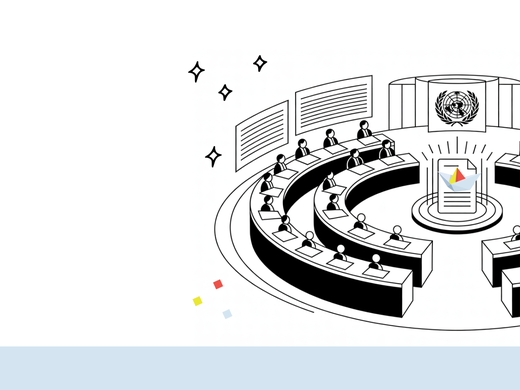The 2025 Open Government Partnership (OGP) Global Summit is now underway in Vitoria-Gasteiz, Spain (7–9 October). With trust in public institutions strained, AI reshaping policy, and data infrastructure under pressure, over 2,000 leaders are gathered to confront a hard question: can we still deliver on the promise of open government?
Spain’s leadership: As co-chair of the OGP Steering Committee (2024–2025), Spain is not just hosting — it’s shaping the global agenda. Together with civil society co-chair
Cielo Magno, Spain has outlined a three-pillar focus:
People, Institutions, Technology. Now comes the hard part: turning frameworks into functioning systems.
Why this summit matters
For years we have demonstrated that governments can publish data. The harder test is whether societies use it, trust it, and embed it into decision‑making. Open data must be treated not as decoration, but as public infrastructure. This Summit is an opportunity — perhaps a mandate — for the open government movement to reassert itself as builders of public goods.
Across three days, public officials, civil society actors, technologists, and researchers will gather to ask hard questions: What does real transparency look like in 2025? Will open government efforts move beyond declarations into systems that last? Will commitments stay lofty, or will they lead down the long road of governance, operations, and accountability? And how can we reimagine public infrastructure—not just roads and rail, but digital and data infrastructure that supports democracy? The Open Parliament plan, regional OGP Local work, and national portals will all be in view.
Spain’s performance signals: what the data tells us
| Signal |
What it tells us |
Source |
| OGP co-chair agenda |
Trust is the north star; expect emphasis on participation quality, institutional integrity and responsible tech/AI. |
OGP co-chair agenda |
| Open Parliament plan |
Legislative openness is moving from aspiration to process change (traceability, access, citizen input). |
Parliamentary Plan 2025–2027 |
| ODM 2024 “Trendsetter” |
Spain’s open data governance and quality mechanisms are comparatively mature across policy, impact, and data quality dimensions. |
EU country factsheet (PDF) |
| OECD indicators |
Above-average digital govt capabilities; strongest on systematic adoption — foundation for scaling open-by-default services. |
OECD 2025 Country Note |
| IRM results 2020–2024 |
A large, multi-actor plan (48 final commitments) — but several were dropped; scope is not a substitute for feasible delivery. |
OGP IRM results report |
Key Themes from the 2025 OGP Summit
Here are four frontier challenges the Summit surfaces — and which we must insist on from participating governments:
| Theme |
Crucial Question |
What Excellence Looks Like |
| Open Parliament & Legislative Data |
Can we follow legislation as data — from bills to amendments, votes, evidence, committee reports? |
Every law’s lifecycle captured in structured, linked format; APIs for amendments, roll calls, and explanatory materials; citizen comment channels; audit ability by default.
|
| AI Governance & Algorithmic Openness |
As governments adopt AI, can we demand transparency, explanation, and redress? |
Algorithms used in policy or public services must publish logic outlines, lineage, accuracy metrics, and appeal channels. Open by design.
|
| Scalable Data Infrastructure |
Can open data truly scale beyond showpiece portals? |
Modular ingestion, validation pipelines, versioned APIs, open metadata schemas, and a culture of reuse — not bespoke portals for each agency.
|
| Civic Oversight & Enabling Environments |
Can civil society and media freely monitor and challenge using data? |
Legal protections, funding for civic tech, independent journalism, and public dashboards tracking progress — not just commitments but performance transparency.
|
The hard part: making OGP commitments implementable
- Narrow the scope early: name one service, one audience, one outcome. E.g., “Publish machine-readable procurement data for SMEs to reduce bid prep time by 20%.”
- Codify standards: adopt DCAT-AP, schema.org, and sector schemas at the outset; publish the profile and examples so others can re-use.
- Automate freshness: data that isn’t updated erodes trust. Build ingestion pipelines with validation rules and automated QA (validations at schema + business-rule level).
- Design for participation: for each dataset/service, provide: explainers, issue tracker, feedback form, and a public roadmap. Close the loop visibly.
- Measure user value: track intent (searches, queries), success (downloads/API hits), and outcomes (policy change, cost/time savings). Publish the metrics.
- Own the operating model: clarify who curates, who approves, who fixes pipelines, who handles requests. Make it a runbook, not folk knowledge.
From Portals to Public Power
Data is infrastructure. Like roads, if we don’t build and maintain it well, everything else slows down or collapses. Yet for too long, governments launched open data portals with fanfare, but no strategy. They published without purpose. And then they wondered why no one came.
Platforms like CKAN were created not just to publish data, but to power ecosystems. At the OGP Summit, we must re-centre that thinking. What matters isn’t just the dataset—it’s the delivery pipeline: is the data usable? Is it trusted? Is it part of a feedback loop where citizens can respond, improve, and innovate on top?
Why This Matters to the CKAN Community
Open data is the connective tissue of open government: evidence-based policymaking, transparency by default, and citizen-centered services all depend on trustworthy data infrastructure. As a leading open-source data management system, CKAN helps governments:
- Publish with confidence: robust metadata, versioning, and data governance patterns.
- Operationalize commitments: turn high-level pledges into maintainable portals, APIs, and workflows.
- Enable participation: make data discoverable, reusable, and accessible to wider communities—researchers, journalists, civic tech, and the public.
- Measure outcomes: usage analytics and feedback loops to iterate policy delivery (not just launch portals).
Where CKAN helps (quietly)
CKAN was built to make data open, discoverable, and reusable. In a high‑stakes context like the OGP Global Summit, CKAN provides the backbone for data infrastructure that delivers:
- DCAT‑AP compliant metadata registries with powerful extension capabilities.
- Robust APIs for filtered search, catalog browsing, and versioned bulk downloads.
- Integration with validation pipelines — including Frictionless and schema conformance checks.
- Analytics to track dataset reuse, freshness, feedback, and engagement metrics.
- Modular plugins for legislative, geospatial, and domain‑specific datasets.
See Spain’s national open-source architecture at
datos.gob.es: Technology.
What Comes Next?
The real test of OGP has always been after the summits end. Will commitments made this week be delivered six months from now? A year? Will we have metrics that matter — not just how many datasets were published, but how many people used them to hold power to account?
For that, we need:
- Credible and usable data infrastructure
- Open standards to ensure comparability and reuse
- Community co-creation—not just “consultation” after the fact
- Public digital institutions that are resourced, independent, and durable
In Closing
The OGP Summit is a spark. But the fire needs fuel: sustained investment, better tooling, and deeper public engagement. Openness isn’t about compliance, it’s about power — and who has the means to shape the future.
Let’s use this moment not just to talk about open government, but to build the infrastructure that makes it real.


